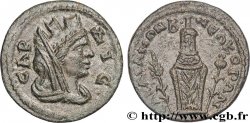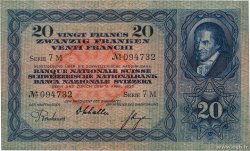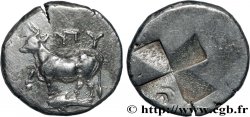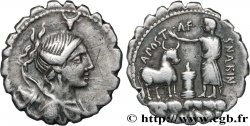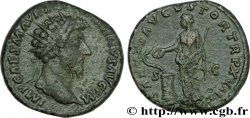недоступный.
Товар уже продан в нашем интернет-магазине (2016)
Цена: : 75.00 €
Товар уже продан в нашем интернет-магазине (2016)
Цена: : 75.00 €
Тип Hemiassarion
Дата: c. 193-211
Монетный двор / Город: Magnésie du Sipyle, Lydie
Металл: copper
Диаметр: 14,5 mm
Ориентация осей монеты: 6 h.
Вес: 2,17 g.
Редкость: R1
Комментарии о состоянии
Exemplaire sur un petit flan bien centré. Belle tête de Tyché. Revers énigmatique. Jolie patine vert foncé
Лицевая сторона
Аверс: описание: Buste tourelé et drapé de Tyché à droite.
Аверс: легенда: MAGNE-SIA
Аверс: перевод: (Magnésie).
Обратная сторона
Реверс: Описание: Trépied.
Реверс: легенда: SIP-U-LOU
Реверс: перевод: (du Sipyle).
Комментарий
Ce type est frappé entre la période antonine et le règne de Gallien. La typologie fait penser plutôt à la dynastie des Sévères.
This type was struck between the Antonine period and the reign of Gallienus. The typology is more reminiscent of the Severan dynasty.
This type was struck between the Antonine period and the reign of Gallienus. The typology is more reminiscent of the Severan dynasty.







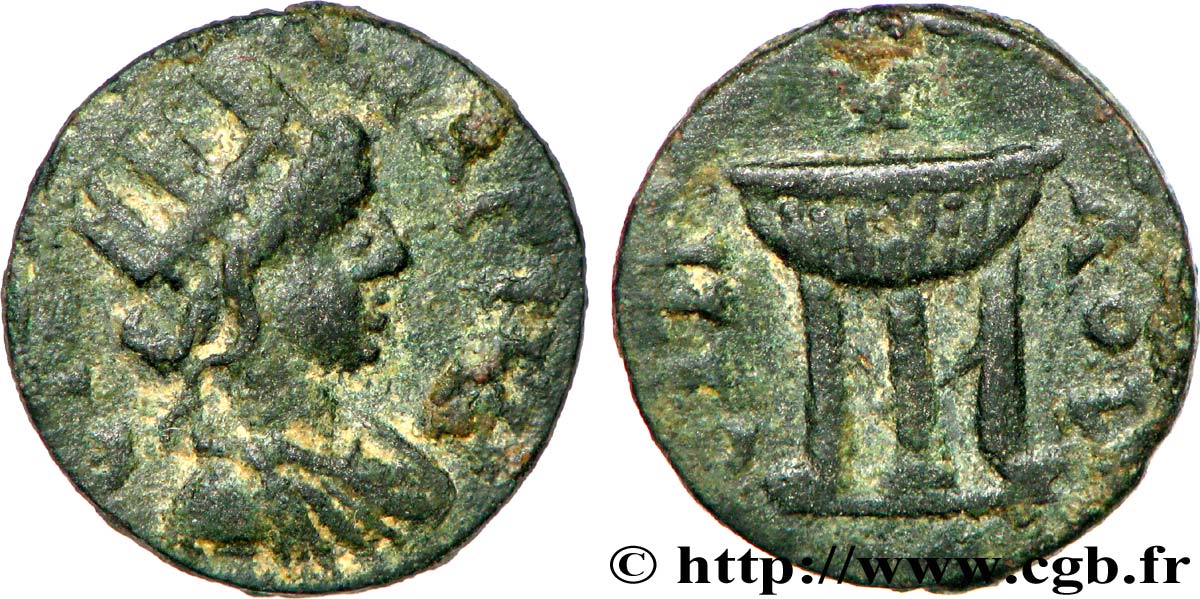
 Cообщить об ошибке
Cообщить об ошибке Распечатать страницу
Распечатать страницу Отправить мой выбор
Отправить мой выбор Задать вопрос
Задать вопрос Consign / sell
Consign / sell
 Информация
Информация



